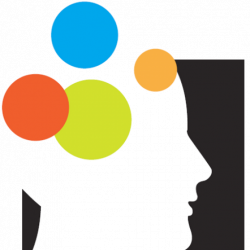By: Akshara Rajeshkannan and Rachel Zhou

R: Could you tell us your major, what year you’re in and where you’re from and if you did an honours or directed studies project?
Name: Steph
Major/Year: Psych Honours, 3rd year
From: I was born in the States, but I moved to Vancouver when I was really young.
Pronouns: she/her
R: Tell us one fun fact about yourself.
S: I actually started in the business program at UBC. I got into a very serious cycling incident in the summer of my first year in Thailand however, and that accident made me have an epiphany, where I realised that I was studying business for the wrong reasons, and didn’t actually see a future in it. So I left my degree and worked as a travel blogger for a few years, worked in social media marketing for a while, and eventually found my way back to psychology at UBC.
R: Could you give us a short overview of your honours project? Starting off with your research topic?
S: My honours project is on human chatbot interactions at Dr. Dunn’s lab. We’re exploring alternative sources of connection that can be accessible to people who are lacking adequate social support. I am interested in whether humans are able to turn to chatbots for social support, rapport, positive affect, and connection in the future. Compared to previous research, the sample size we’re testing is much larger, and we’re also looking at response style, which is a novel line of research.
In this 2×2 design, we manipulate both the partner and the response style. Participants are randomly assigned to either believe they are talking to the chatbot or to a human partner. Moreover, their partner is either replying to them optimally/supportively, or suboptimally/negatively, and we tested to see whether the replying style would affect participant preference.
R: What sparked your interest in your research topic and how did you build your hypothesis?
S: Over the summer of my second year, I worked as a research assistant at the culture and self lab. During a weekly lab meeting, one of my lab mates––Miranda––talked about the *uncanny valley effect and our perception of robots. I was really fascinated by the topic! Furthermore, the outcome variables such as social connection, positive affect, and rapport, are all related to well-being, which is a topic I’m really interested in studying within the field of psychology.
*Uncanny Valley Effect = the unsettling feeling we get from robots and virtual agents that appear too human-like.
R: Was there anyone who inspired you to look into this topic?
S: Aside from Miranda inspiring me to look into the specific topic of chatbots and AI, I think the general topic on well-being was inspired by my own struggles and experiences. Reading other people’s research in social and positive psychology has also helped me establish my interest in the field. I also read ‘Man’s Search for Meaning’ by Dr. Frankl, which was also a turning point for me. During the time I spent out of university, I was dealing with depression, and I felt like my life lacked purpose. I hope to help others through those phases in their lives as well, not from a clinical perspective but rather from a research perspective.
A: What was your favourite part of the process?
S: This might sound weird, but I think my favorite part was failing so epicly multiple times and messing up the most ridiculous things. One time, I forgot that I was supposed to run participants at a certain time, and the grad student I’m currently working with, Dunigan Folk, was so understanding about everything. All those moments in which I felt incompetent helped me grow and realize that the learning process is imperfect, and that it’s okay to fall and make mistakes.
A: Is there anything you can share with us about the results that you found? What trends/conclusions did you observe?
S: The results haven’t been published yet, so unfortunately I can’t share them right now! But, my personal intuition was that the participants would prefer the human over the chatbot, however, there are theories that suggest that we are good at suspending our disbelief when something appears human-like. There is a theory called *‘Computers are Social Actors Framework,’ and it supposes that we perceive and interact with computers in a social manner that is analogous with how we interact with humans. For example, this theory found that people are polite with computers when they interact with them, even though they don’t need to be. It’s like they are supplanting the same social heuristics they use everyday when interacting with humans, with computers as well, which goes against my intuition.
*Computers are Social Actors Framework (CASA) = suggests that humans mindlessly apply the same scripts they use for interacting with humans to interactions with technology.
A: What will you be doing with your data and conclusion now? How do you plan on presenting it?
S: We have now finished both the data analysis and the writing process. Dunigan is planning to publish our research in a social psychology journal, and I’m currently making my rounds through all the undergraduate conferences. I presented at MURC (Multidisciplinary Undergraduate Research Conference) recently, and soon I’ll be presenting at the UBC PURC (Psychology Undergraduate Research Conference), and at the Mid-Atlantic Undergraduate Research Conference.
R: How do you see the results of your study being applied in the real world?
S: We can’t speak to the current chatbots that exist since we used research assistants for both the human and chatbot conditions. However, I believe in five to ten years when chatbots can mimic humans even better than they already do, then our research may help suggest that they could provide social benefit to humans. There are still many limitations we need to address, but potentially, people who lack social support can turn to these chatbots for help.
R: If you could do your study again, what would you do differently and why?
S: Dunigan and I used a measure from Watson et al.’s scale called *PANAS to measure positive affect. It was not sensitive to our measure of response style, so the panas score of the participants who received positive interactions wasn’t higher than that of the participants who received negative interactions. In short, the positive response style group should have a unquestioningly higher score than the negative response style group. This might have been because the panas scale was not sensitive enough to show these differences within an eight minute conversation time. If we were to do the study again, we would use Ed Diener’s scale. This scale is called the *SPANE.
*PANAS = Positive and Negative Affect Schedule, one of the most widely used scales to measure mood & emotion. Participants are presented 20 feeling/emotion words (e.g. excited, distressed, scared), and asked to rate each from 1 to 5.
*SPANE = Scale of Positive and Negative Experience, a 12-item questionnaire which includes 6 items to assess positive feelings and 6 items to assess negative feelings. Uses a 1-5 scale with 1 being ‘very rarely/never’, and 5 being ‘very often/always.’
A: What course(s) do you think were most helpful in gaining background knowledge about your research topic?
S: PSYC 308 (Social Psychology) was super helpful in gaining background knowledge, and PSYC 359 (Advanced Statistics) was very helpful for the data analysis process. The most helpful class by far though was the honours seminar. The whole purpose of the class was to hold our hands through the paper writing process, and that was super helpful. Being able to practice our presentations during the seminar was great as well. And finally, being able to interact with and learn from the 4th years in the seminar was really beneficial.
A: How has your project helped you grow, both personally and professionally?
S: I’ve grown to enjoy the uncomfortable part of the process. I started getting used to and reconciling with the fact that I’m not perfect, and that was really valuable for me. It’s an attitude that I will take into my everyday life. Academically, I’ve learned how to manage an RA team and understand what happens behind the scenes of a research project. I learned how to best encourage my team, but also how to offer critical feedback. Writing a research paper on research that was my own felt a lot more important, and as a result I went really in-depth with my report. I now feel less anxious about making mistakes, and my unrealistic expectations for myself have lowered. This allows me to stress less about being perfect, and as a result, I’m able to learn better!
A: Tell us about how you prioritise your time during the honours project. How do you motivate yourself?
S: I love research and want to go into the field of organisational behaviour, so I don’t think I need a lot of motivation to get going. However, I do still need to be organised and manage my time well because I still have classes and other things to do besides research. I write a lot of lists, and I just start with the first thing and continue from there.
A: How do you network within the psychology community, and where have you made your most valuable connections?
S: One piece of advice I received from Dr. Dunn once was to network horizontally. it’s important to remember that the peers that are around you right now will be the ones that are prominent in your field in the future. They will be your greatest critics but also your greatest supporters, so it’s important to start getting to know your peers and connecting with them. I know that over Zoom school it’s a bit tough to maintain those connections, but one thing I’ve been doing with my friends is conducting Zoom study sessions. The study sessions are awesome, especially when I feel like I’m lacking energy to study.
R: What are your other interests outside of Psychology? Are you a part of any clubs or teams?
S: I really like reading books and papers in my spare time. I also listen to podcasts on psychology and Organizational Behaviour related topics. In particular, I really enjoy listening to ‘Work Life,’ which is a podcast hosted by organizational psychologist Adam Grant. There’s also a pretty cool psych podcast called ‘Two Psychologists Four Beers.’ Jumping outside of psychology for a moment, I’ve also really enjoyed connecting with my culture recently. I’ve spent the past few years learning about my roots, and learning how to be proud of my heritage. I love watching Chinese dramas, listening to BTS, and making different types of asian food.
R: What are your professional goals and plans for the future? What do you see yourself doing in 10 years time?
S: My goal is to receive a PhD in organizational behaviour. I have a few business schools in the States as my top choices for my PhD. After that, I plan on doing some postdoc training, and hopefully finding a full-time faculty position at a university. I was a TA for PSYC 218 last year and I really enjoyed the teaching aspect. So I hope to be teaching at a university and doing research in organizational behaviour in the future.
R: Is there anything important you’d like to say that I haven’t asked you about?
S: I’ve met many good mentors who have guided me through my journey. They’ve all held my hand during this process, and it was hugely instrumental. Just having good people around you who are patient and willing to accept your mistakes is definitely helpful. When you’re in your darkest moment, the way to get through it is just to get through it. Eventually, it will pass. Just keep going!
NOTE: If anyone is interested in reading the paper when it comes out, then please reach out to us and we will keep you updated!

